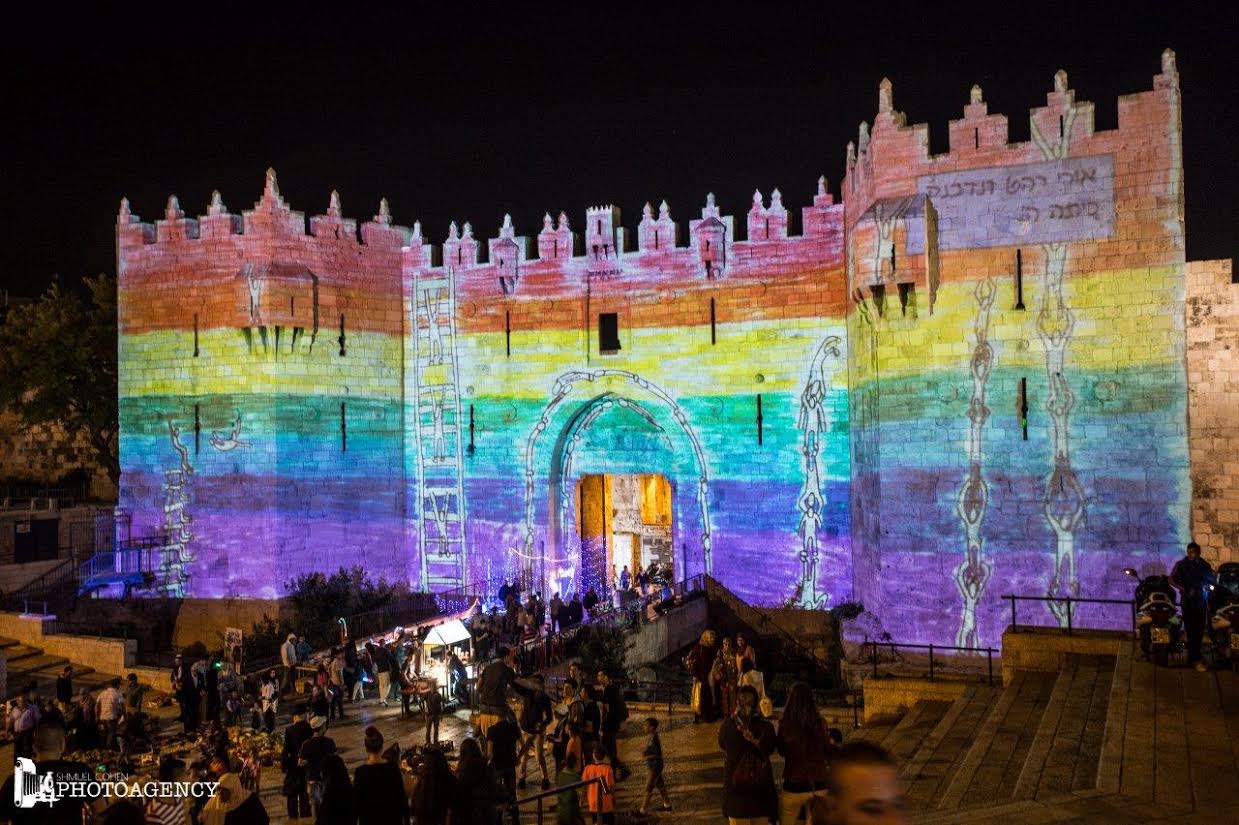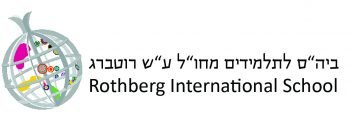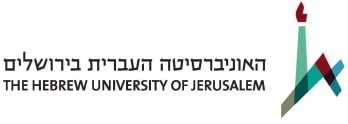
Hebrew University’s Rothberg International School (RIS) is committed to supporting and celebrating the wide range of identities that exist in our world. We aim to create a fair, equal, safe, and encouraging environment for all, regardless of race, religion, gender, sex, and ethnicity. We strive to ensure that all students are fully supported and comfortable at our institution, and we hope to prepare them as much as possible for life in Jerusalem and Israel.
RIS faculty, students, administrators, and staff fully embrace a vision of equity, diversity, and inclusion. By being in the unique and holy city of Jerusalem, we have an opportunity to lead by example, both as an institution and as people, to create a more equal and fair society.
We are committed to:
- Eliminating intimidation, bullying, and harassment, including unwanted physical contact, offensive jokes, personal insults, and offensive materials. These unwanted actions will be treated as disciplinary offenses.
- Promoting an inclusive community in which diversity is valued and every member feels they have a rightful place and are welcomed, respected, and supported.
- Developing and supporting programs and policies that help attract and retain students from historically underrepresented groups, as well as hiring and promoting faculty, administrators, and staff from those groups.
- Building structures that promote inclusiveness and equity for all members of the RIS community, especially students and staff from marginalized groups.
A coordinator is in place to handle any comments or questions relating to diversity and inclusion at RIS and HebrewU, as well as in Jerusalem and Israel.
Jerusalem is a diverse city, home to people who have come from all over the world – and who have a wide range of ethnic backgrounds. Many people in Jerusalem will understand and respect the fact that in other countries, such as the United States, there is a significant distinction between nationality and ethnic heritage. However, in Israel as a whole – and even sometimes in Jerusalem – locals may initially make assumptions about nationality based on perceived ethnicity. They may also hold stereotypes about various groups of people with whom they haven’t had many encounters.
Advice & Support
Please don’t hesitate to consult with our Office of Student Life staff if you have questions or concerns, or would like to discuss any (negative or positive) experiences or encounters you have as a student of color in Israel. We’re here to support you!
Places of Worship in Israel
- Jerusalem has a number of synagogues, mosques, and churches that welcome student members.
- Please see our Religious Life page for more information.
Religious Attitudes & Conflicts in Israel
- A variety of religions are openly accepted in Israel, as freedom of and from religion is protected by law. Socially, Israelis are very opinionated about religion.
- Atheist and agnostic beliefs are also tolerated and treated as legitimate in Israel.
- There is, however, tension in Israel between Jews and Muslims (and Christian Arabs), which is exacerbated by the Israeli-Palestinian conflict.
- Within Judaism, there is conflict between ultra-Orthodox and other Jews (mostly secular and modern-Orthodox), and also between Orthodoxy and progressive Judaism (Reform, Conservative, and Reconstructionist).
What to Expect
- For Christians, being part of a religious minority may be a new and different experience. This is not a reason to hide one’s identity or crucifix, but an opportunity to learn about other religions and serve as an ambassador of one’s own religion.
- Jews and Muslims might find comfort and feel at home worshipping in Israel. But they might also feel judged for not being Jewish or Muslim in “the right way.”
- Overall, try to keep an open mind, and do not be afraid to share your own experiences and beliefs.
We welcome LGBTQ+ students, and have compiled a list of resources to help you have fun while staying safe.
There are no laws in Israel prohibiting LGBTQ+ identity or behavior. Many cities in Israel, including Tel Aviv and Jerusalem, host gay pride parades. Jerusalem is more conservative than Tel Aviv, so the parades here have been more controversial, but they do have the support of leading Muslim, Christian, and Jewish liberal religious authorities. It’s important to keep in mind that different areas within Jerusalem may have different levels of acceptance toward people identifying as LGBTQ+.
Please see our dedicated page of LGBTQ+ resources.
Female students receive the same advice as male students about cultural behavior, bars, and other activities in Israel. You will not need to take any additional cautionary measures here that you wouldn’t need to take in your home country. When it comes to traveling, female students are welcome to do so alone, but we recommend all students travel with a companion for safety in numbers.
Differences to Be Aware Of:
- Men in bars might be pushier towards women than they are in the US, because they are used to being told very directly when their attention is unwanted.
- If a female student is behaving politely, it may be misunderstood as permission to continue showing interest.
Heritage students are Jewish or Arab students who have ancestors from or relatives still living in the region. These students may face some unique challenges and discussions as they get acquainted with locals.
Heritage Students & Language
- Locals will view Jewish students who do not speak Hebrew in the same way as other tourists. It is not unusual for a non-Israeli Jew not to speak Hebrew.
- Locals may consider it somewhat more unusual for Arab students not to speak Arabic.
General Advice & Information
If you are a student with family in the area, you can opt to live with them, provided your program allows it. Please check with the program coordinator at your home institution if you would like to live off-campus with family.
- Jewish students should be aware that at the moment, Orthodoxy is the recognized religious interpretation of Judaism in Israel, and other progressive forms of Judaism are fighting for equal rights. This could make a non-Orthodox Jew feel uncomfortable.
- Arab students should be aware that regardless of whether they’ve formed concrete opinions, they might be pulled into a political or religious debate.
Stereotypes to Be Aware Of
- Jewish students from outside of Israel might be perceived as rich and privileged, or may be judged for not moving to Israel and joining the army.
- Arab students from other countries might also be perceived as privileged for having grown up in more comfortable circumstances than their relatives.
- Depending on whom you are talking to, Arab students might face judgment for even acknowledging Israel by studying at HebrewU.
- As always, if you encounter any problems, don’t hesitate to speak with someone from The Office of Student Life.
The university provides students who are parents with the opportunity to combine family and higher education. Students may enroll their newborns and toddlers in the university day-care system. In addition, there are nursing stations throughout the university.
Tel.: +972 2 588 2101
Hours: Sunday through Thursday, 7:30 a.m. to 4:00 p.m.; Friday, 8:00 a.m. to 12:30 p.m.
We welcome students, faculty, staff, and visitors with disabilities. HebrewU works to ensure an accessible, welcoming working and learning environment for all individuals. Here is a list of resources for those with mobility, learning, or other disabilities:
Accessibility Services Center
HebrewU has an Accessibility Services Center that provides on- and off-campus resources and assistance for those with disabilities. The website is in Hebrew, but you can email the center directly or ask the Office of Student Life for translation assistance.
The university reserves space for students with disabilities in all lecture halls, and maintains an FM system for those with hearing disabilities. Students who are suffering from a neurological disability can receive physical therapy and access to the School of Occupational Therapy lab for diagnosis of writing skills. The lab offers typing courses and helps students overcome difficulties.
See our accessibility map (Hebrew) of the Mount Scopus campus.
The center also helps raise awareness among students and teachers and informs students with disabilities of their rights at the university.
ADD, ADHD, & Other Learning Disabilities
We have an office to support and guide students with learning disabilities, including ADD and ADHD. It provides a large array of technologies and professional didactic assessments, as well as private tutoring and group seminars for improving learning skills such as time management, summarizing lectures, and academic writing.
The website is in Hebrew, but you can email the center directly or ask the Office of Student Life for translation assistance.
Email
Office Hours: Sunday through Thursday, 9:00 a.m. to 3:00 p.m.
Tel.: +972 2 588 1183
Location: Reznik Dorms, Building 10 (first floor)
Learning Center for the Blind*
The Learning Center for the Blind offers a large collection of books in braille and on tape. Additionally, the center provides academic guidance, assistance with academic work (tutoring, transcribing, etc.), and computer equipment for the blind. The center also gives career assistance to graduates and organizes community service for the blind.
*This link is in Hebrew, if you need any further assistance, please contact the Office of Student Life.
Email
Tel.: +972 2 501 1000
Fax: +972 2 501 1001
Address: ALEH Jerusalem, 9 Harikma St., P.O.B. 61023, Jerusalem 91610
Additional Services & Organizations
HebrewU assigns accessible parking spots, and all campus buildings are wheelchair-accessible. The Faculty of Law has a law clinic for the advancement of people with disabilities. Finally, the university has a group for students with disabilities.
Additionally, there are organizations throughout Israel designed to help people with disabilities (services for the blind, organizations offering access to wheelchairs and walkers, etc.). They might not always be English-language friendly, but our Office of Student Life staff is happy to help facilitate any kind of service you need.
Please get in touch with us for assistance.
Life in Israel
- Public transportation in Jerusalem is accessible for people with disabilities, as is the university and most stores, restaurants, and public spaces.
- People with disabilities are integrated into all aspects of Israeli society and are visible in the public sphere. In most cases, people with disabilities are treated with consideration and respect.
- That said, locals in Israel can sometimes seem pushy, offering assistance when it isn’t needed or asking prying questions about disabilities.
- It is also important to recognize that, though Israel has made much progress in increasing accessibility for those with disabilities, Jerusalem is an old city that is still working to provide some necessary accommodations.
- Finally, never be afraid to ask for help when you need it, or to reject unsolicited, unneeded help or prying questions. The RIS Office of Student Life is here to assist you.
Perception of Military Personnel & Veterans
- Military personnel and veterans are respected in Israel, as they are viewed to be fighting the same war on terror that is being fought by the Israeli military.
- The military cooperation and joint trainings between Israel and other countries, especially the US, is acknowledged and valued by Israelis.
- Most Israeli citizens serve in the IDF and will respect a fellow veteran – it is considered something to be proud of and not hidden.
- Within Arab communities in Israel, it would be wise to be more discreet regarding military experience, as it is sometimes viewed as anti-Muslim or anti-Arab, and can tie into the Israeli-Palestinian conflict.
Dietary considerations and limitations are very common in Israel, so you should never be afraid to say that you need accommodations or to ask for explanations. Due to the language barrier, you should always double-check to make sure the food you are ordering or purchasing fits your dietary restrictions, particularly if you have a serious allergy or intolerance.
- Kosher is the standard in Israel, and there are plenty of kosher restaurants and shops, especially in Jerusalem.
- All kosher restaurants are also halal, but you will also find specifically halal restaurants and shops in some areas of Jerusalem.
- Likewise, for vegetarians and vegans, there are plenty of restaurants and shops throughout Israel that provide meat- and dairy-free options.
- The term “gluten-free” is recognized and accommodated in Israel – we use the same word in Hebrew for gluten.
Contact Us
Gal Lombrozo
Director of the Office of Student Life
gallom@savion.huji.ac.il
Phone: +972 2 588 2622
Office 104, Boyar Building

